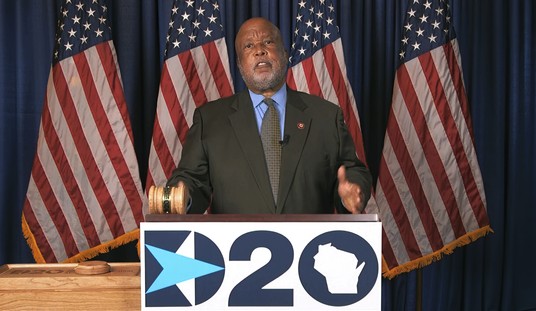If Democrats thought the defection of Arlen Specter would help them get Barack Obama’s court nominees an easier ride to confirmation, the Republicans have answered that with Jeff Sessions. The GOP caucus moved Sessions into Specter’s slot as the ranking member of the Senate Judiciary Committee, signaling that Republicans intend on engaging fully in the process. Sessions has solid conservative credentials — and a chip on his shoulder regarding his own treatment by Democrats on this panel:
Senate Republicans yesterday took the first steps in preparing to challenge President Obama’s eventual nominee for the Supreme Court, selecting as their point man for confirmation hearings a backbench Alabama conservative whose own 1986 nomination to the federal courts turned into a racially tinged firestorm.
Sen. Jeff Sessions was named the ranking Republican on the Senate Judiciary Committee, a key perch that was left vacant last week after Sen. Arlen Specter (Pa.) switched to the Democratic Party. Sessions will take center stage in efforts to test Obama’s choice to succeed retiring Justice David H. Souter at a time when Republicans have seen their ranks in the Senate decimated and the party lacks an obvious spokesman on legal matters.
Sessions has an unfortunate plethora of experience in dealing with politically-charged Senate confirmation hearings. If Democrats coined the term “Borking” with their aggressive attack on Robert Bork during his failed confirmation, they warmed up with Sessions in a lower-profile appointment:
The ascension to the top minority post on the Judiciary Committee brings Sessions full circle from his own nomination fight 23 years ago. Appointed a U.S. attorney in Alabama in 1981, Sessions was nominated to become a U.S. District judge by President Ronald Reagan in 1986. A career Justice Department lawyer testified that Sessions had once called the NAACP an “un-American” group, while another raised issues about remarks Sessions made about the Ku Klux Klan.
Sessions faced heated questioning from a pair of Democrats still playing prominent roles today, Sen. Edward M. Kennedy (D-Mass.), who called the nominee “a throwback to a shameful era,” and Vice President Biden, then a senator in the initial stages of launching his failed 1988 presidential campaign. The committee held four hearings, more than were held on any recent Supreme Court nomination, with Sessions pleading “I am not a racist” during one committee appearance.
Sessions’s nomination failed in committee on a 10 to 8 vote, with Specter joining the nominee’s original patron, Sen. Howell Heflin (D-Ala.) in dooming the nomination. In 1994, Sessions turned his attention to elected office, winning a state attorney general’s race. He was elected to the Senate in 1996 after Heflin retired.
Sessions may have a few scores to settle with Kennedy and Biden, maybe especially the latter. As Vice President, Biden serves as Obama’s official representative to the Senate as its president, and will no doubt play a major role in managing the Supreme Court nomination through the confirmation process. Session has good reason to feel antipathy towards Biden, and certainly towards the Democrats on the committee, including Specter, who stabbed him in the back.
The Democrats lost in this exchange. In Specter, they had an adversary who didn’t take many adversarial positions. During the Bush administration, he was more a thorn in the side of Republicans than Democrats in confirmation hearings. His leadership on the panel was controversial in 2004-5, when many Republicans argued that Specter should be demoted on Judiciary in favor of Orrin Hatch or another senior Republican. Hatch declined and the Bush administration endorsed Specter for the slot, in part to keep him from jumping ship.
Jeff Sessions won’t start trouble for no good reason. He’s not a bitter partisan, but a strong conservative voice who understands that elections have consequences. Sessions won’t be afraid to stand up for those principles, though, and he will not shy away from a fight if Obama selects a far-left ideologue or a hack to the bench, especially the Supreme Court. This is a definite upgrade for Republicans and conservatives in a key arena.








Join the conversation as a VIP Member